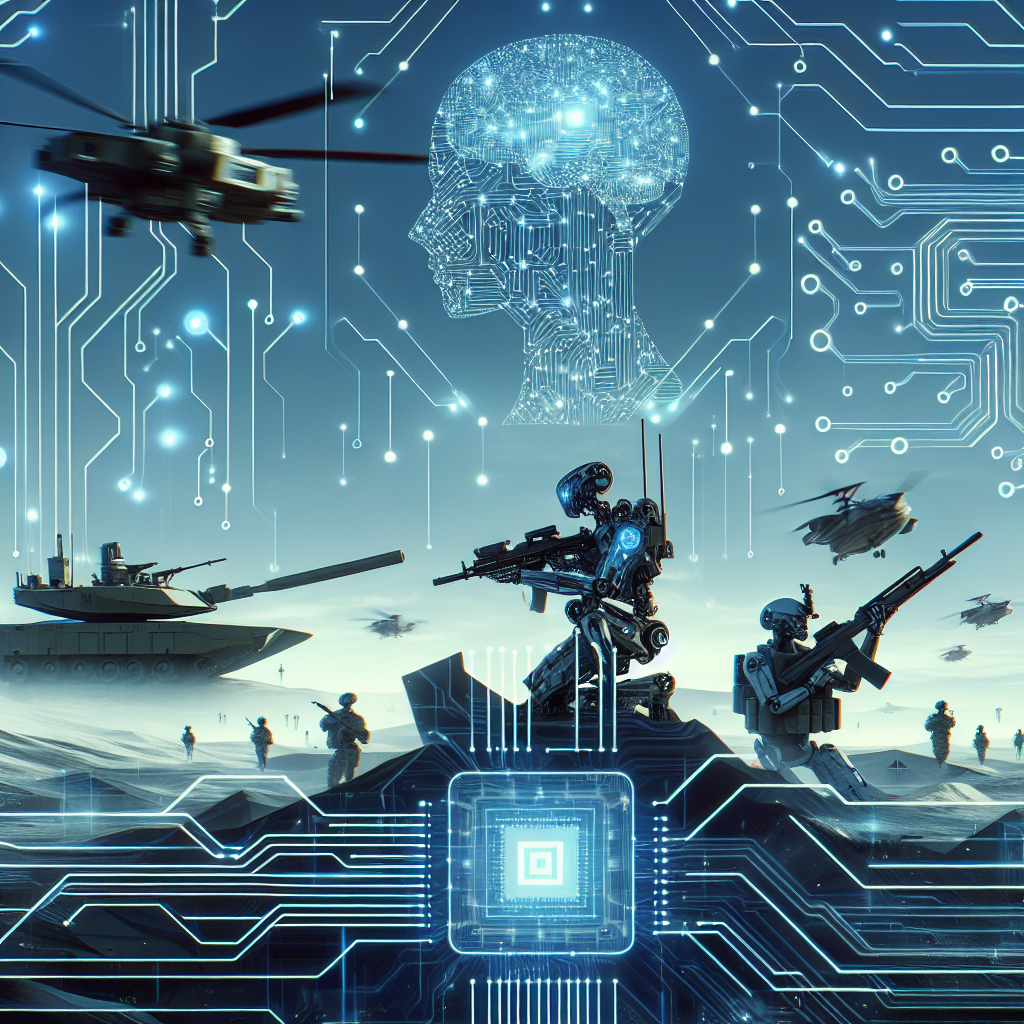Artificial General Intelligence (AGI) is a concept that has long been the stuff of science fiction, but with recent advancements in artificial intelligence (AI), it is becoming increasingly closer to reality. AGI refers to a form of intelligence that can understand and learn any intellectual task that a human being can. This level of intelligence has the potential to revolutionize many aspects of society, including warfare.
The use of AI in warfare is not a new concept. In fact, AI has been used in various military applications for decades, from drones to autonomous weapons systems. However, with the development of AGI, the landscape of warfare is set to change dramatically. AGI has the potential to revolutionize the way wars are fought, with AI systems capable of making decisions and taking actions independently of human control.
One of the key advantages of AGI in warfare is its ability to process vast amounts of data and make decisions quickly and accurately. This can give military commanders a significant advantage on the battlefield, allowing them to react to changing situations in real-time and make better-informed decisions. AGI can also be used to predict enemy movements and behaviors, allowing for more strategic planning and tactics.
However, the use of AGI in warfare also raises a number of ethical and legal concerns. The use of autonomous weapons systems, for example, raises questions about the accountability and responsibility for actions taken by AI systems. There are also concerns about the potential for AGI to be used in ways that are unethical or in violation of international law.
Despite these concerns, the development of AGI in warfare is likely to continue, as countries around the world seek to gain a competitive edge on the battlefield. The use of AI in warfare is already a reality, and as AGI becomes more advanced, its impact on the future of warfare will only grow.
FAQs
Q: What is AGI and how is it different from AI?
A: AGI stands for Artificial General Intelligence, which refers to a form of intelligence that can understand and learn any intellectual task that a human being can. AI, on the other hand, refers to a more specialized form of intelligence that is focused on specific tasks or applications.
Q: How is AGI being used in warfare?
A: AGI is being used in warfare in a variety of ways, from autonomous weapons systems to predictive analytics. AGI has the potential to revolutionize the way wars are fought, with AI systems capable of making decisions and taking actions independently of human control.
Q: What are the ethical concerns surrounding the use of AGI in warfare?
A: The use of AGI in warfare raises a number of ethical concerns, including questions about accountability and responsibility for actions taken by AI systems. There are also concerns about the potential for AGI to be used in ways that are unethical or in violation of international law.
Q: Will AGI replace human soldiers on the battlefield?
A: While AGI has the potential to revolutionize warfare, it is unlikely to replace human soldiers entirely. Human soldiers will still play a critical role in warfare, but AGI systems can provide valuable support and assistance in a variety of ways.
Q: What are the potential benefits of using AGI in warfare?
A: The use of AGI in warfare can provide a number of benefits, including the ability to process vast amounts of data quickly and accurately, make better-informed decisions, and predict enemy movements and behaviors. AGI systems can also be used to automate routine tasks and free up human resources for other critical tasks.
In conclusion, the development of AGI in warfare is likely to have a significant impact on the future of warfare. While there are ethical and legal concerns surrounding the use of AGI in warfare, its potential to revolutionize the battlefield cannot be ignored. As countries around the world continue to invest in AI and AGI technologies, the way wars are fought will continue to evolve, with AI systems playing an increasingly important role in military operations.

